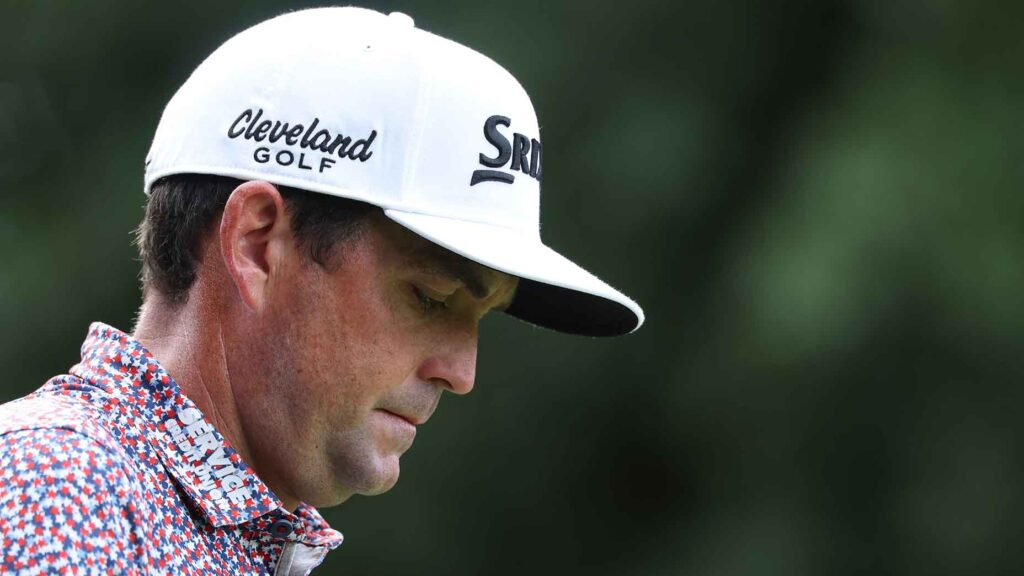Keegan Bradley’s Decision: The Impact on the Ryder Cup Experience
The excitement surrounding the Ryder Cup is palpable, and when Keegan Bradley recently opted not to pick himself as a captain’s choice, it sent shockwaves through the golfing community. Questions flooded in—was this a decision made in haste? How pivotal would his participation have been for the squad? The intrigue surrounding the event mirrors that of the fans, resonating throughout social media platforms, water cooler conversations, and dedicated chats alike.
Keegan Bradley’s decision to abstain from selecting himself as a captain’s pick raises significant questions regarding the dynamics of the Ryder Cup. As one of the premier events in the golfing calendar, it emphasizes the competitive and emotional spirit unique to team golf. If Bradley had chosen to include himself among the captains’ picks, it would not only have upped the ante for the viewer experience but would have also amplified interest in the sport itself, leading to higher TV ratings and increased excitement.
The outcome of these choices directly affects fans and participants alike, who might have benefitted from seeing Bradley return to competitive form on such a grand stage. The secondary ticket market would have skyrocketed, with enthusiasts vying for a chance to witness a storyline that could have been both thrilling and historic. Observers and analysts alike sighed in unison at the lost opportunity; the Ryder Cup, after all, thrives on its capacity to stimulate unique narratives and emotional engagements.
For the players, the Ryder Cup is not just another tournament—it’s a crucible of pressure, showcasing the raw intensity that professional golf can bring. Unlike the typically solitary environment of regular tournaments, the Ryder Cup fosters camaraderie, rivalry, and a sense of national pride. Keegan Bradley’s decision not to play as a captain seems to diminish the thrilling unpredictability that comes naturally with exceptional players competing under immense pressure.
Bradley’s decision was fueled by a blend of personal reflection and strategic planning. He had stated earlier that this choice was "the biggest of his career," underscoring the weight of the moment for him as both a player and a leader. The notion that he had been contemplating this for a while suggests there was a level of forethought that transcended mere impulse, even if fans couldn’t help but wonder, "What if?"
The essence of a Ryder Cup hinges on human emotion—the stakes are impossibly high, and the vulnerabilities of the players emerge in ways unseen during stroke play. The competition becomes fiercely personal, turning the tournament into a dramatic tapestry woven out of anxiety, grit, and raw competition. Would Seve Ballesteros have made such a sacrifice? Most assuredly, his known character suggests he would have jumped at the opportunity to lead from the front.
In examining historical precedents, it’s clear that legendary figures like Phil Mickelson and Tiger Woods would have embraced such an opportunity wholeheartedly. Woods, in particular, exemplified this during the 2019 Presidents Cup, where his involvement catalyzed inspiring performances. It reignited the discussion about the potential for players-turned-captains, an aspect fans yearn to witness but which has been rare in modern times.
Bradley’s cautious approach reflects the pressures faced by today’s players. Past American captains like Tom Watson and Jim Furyk faced scrutiny when their selections or strategies came into question, leading to a fraught atmosphere. The fear of falling short or misjudging the lineup can stifle bold decision-making, which might explain why Bradley opted for caution over courage—a fact that may leave fans pondering what might have been.
A playing captain would symbolize an audacious approach not only to leadership but to the potential of what elite golfers can accomplish under unprecedented levels of stress. This move hasn’t been seen in over 50 years, and the absence of such an exciting dynamic leaves a palpable void in the narrative of competitive golf.
As discussions around the Ryder Cup continue and the captaincy unfolds, fans are invited to share their opinions on this pivotal choice. Whether from behind a keyboard or in conversation, the sentiment remains that the decision has sparked a considerable amount of debate—the kind of debate that enhances the emotional texture of this beloved event in golf.
In conclusion, Keegan Bradley’s decision will echo through the halls of the Ryder Cup for years to come. It serves as a reminder of the intricacies involved in crafting a winning team and the nuanced emotional landscape of competitive sports. The anticipation and excitement that come with the Ryder Cup never fail to ignite passion, but the possibilities lost in this specific captain’s pick showcase the precarious balance between risk and reward in the world of golf.


